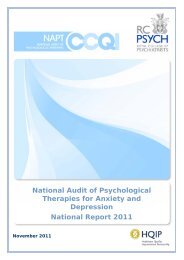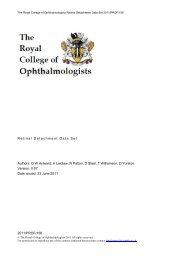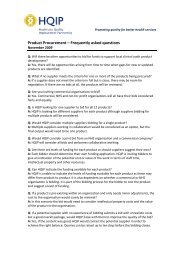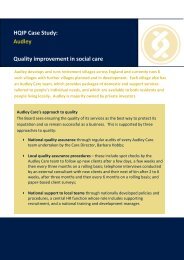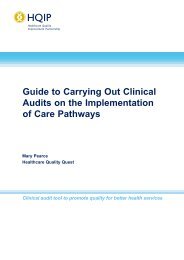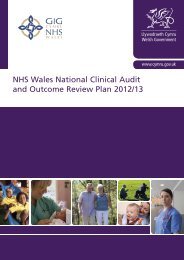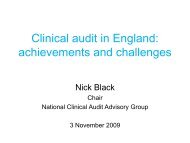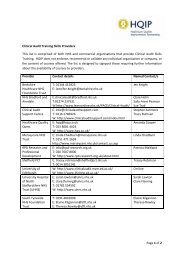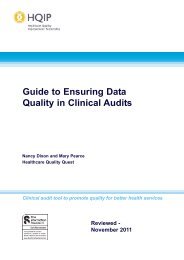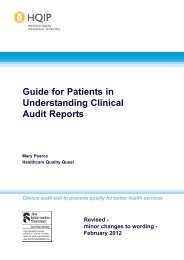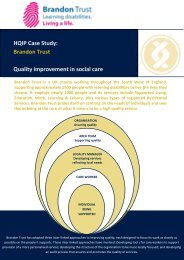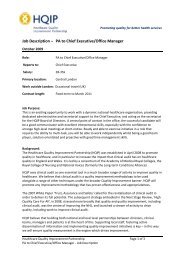Good Governance Handbook - HQIP
Good Governance Handbook - HQIP
Good Governance Handbook - HQIP
Create successful ePaper yourself
Turn your PDF publications into a flip-book with our unique Google optimized e-Paper software.
• Board Secretary – who will ensure that the proper company processes for the<br />
board are followed, and will work with the Chair and the chief executive to<br />
plan the annual cycle of business and the agenda and papers for individual<br />
board meetings. The board secretary should be available to advise the board<br />
that decisions have been properly made.<br />
• Senior Independent Director (SID) – who will be available to all board<br />
members wishing to informally discuss their role and contribution to the<br />
board and who will conduct the annual appraisal and feedback session for the<br />
Chair. In Industry the SID provides the shareholder facing role and with<br />
increasing application of a membership model in the NHS this may develop as<br />
an appropriate SID role.<br />
Why it is important<br />
A board model of governance requires different individuals to take different roles in<br />
order to deliver on the preceding principles of governance. Different actors need to<br />
be charged with different parts of the accountability continuum, and there need to be<br />
managed systems to ensure that information, advice and challenge are brought<br />
together to arrive at the best decisions for all stakeholders. It is important that the<br />
different individuals concerned understand their individual roles in making sure the<br />
board governance system works and can respond to future needs.<br />
The National Inquiry into Fit for Purpose <strong>Governance</strong> (CIHM 2009) found that nonexecutive<br />
board directors were unwilling to openly challenge their executive<br />
counterparts; that there is an excessive focus on the relationship between the chief<br />
executive and chair to the detriment of other board members; and that there is too<br />
much emphasis on the structure of the board, rather than on its processes and<br />
dynamics.<br />
<strong>Governance</strong> principle 9: Knowing the organisation and the market<br />
Those acting as the controlling mind of an organisation have a duty to know and<br />
understand the organisation they are responsible for, and the market in which the<br />
organisation operates. Within the organisation the board needs to understand and be<br />
assured that relevant compliances are being met, and that the organisation remains<br />
fit for purpose. Externally boards need to understand opportunities and risks.<br />
In order to do this, boards should have in place systematic processes so that they<br />
remain informed and assured at all times. The most significant of these will be the<br />
organised delegation to management, described above, and the setting of tolerances<br />
around when and how management should bring matters to the attention of the<br />
board. Other systems boards will have in place to remain aware of internal and<br />
external issues will be specific governance and information systems, such as<br />
performance reports, the board assurance framework, the risk register, decision<br />
tracker, audit plans and professional advice.<br />
www.good-governance.org.uk 16



